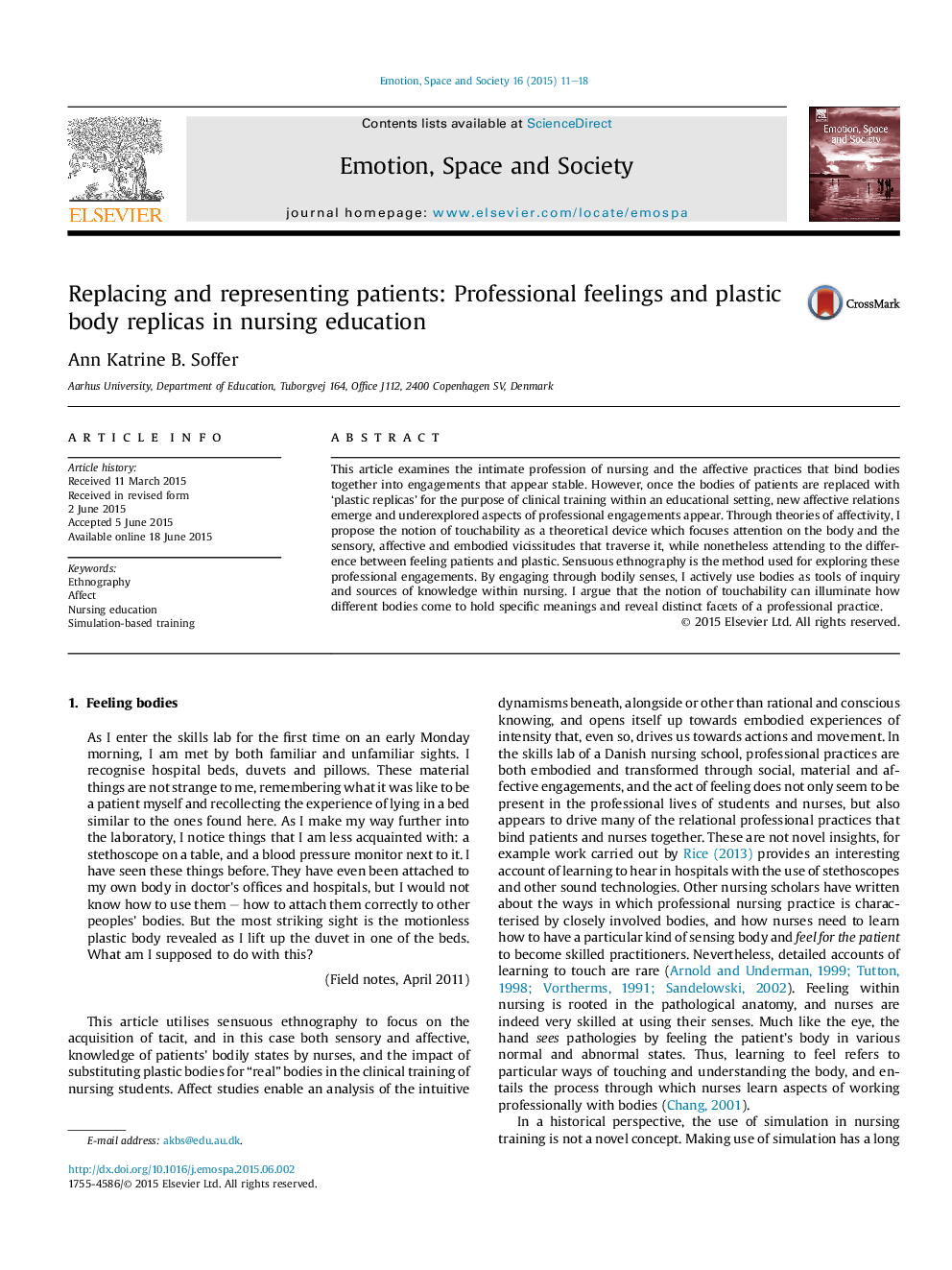| Article ID | Journal | Published Year | Pages | File Type |
|---|---|---|---|---|
| 946616 | Emotion, Space and Society | 2015 | 8 Pages |
•The topic of simulation-based training in nursing education and how it effectively reshapes conventional approaches to teaching and learning within nursing is investigated in this article.•I propose the notion of touchability as a theoretical device, which turns attention to the body and the sensory, affective and embodied vicissitudes that traverse it, while nonetheless attending to the difference between feeling patients and plastic.•Sensuous ethnography is the method used for exploring these professional engagements. By engaging through bodily senses I actively use bodies as tools of inquiry and sources of knowledge within nursing.
This article examines the intimate profession of nursing and the affective practices that bind bodies together into engagements that appear stable. However, once the bodies of patients are replaced with ‘plastic replicas’ for the purpose of clinical training within an educational setting, new affective relations emerge and underexplored aspects of professional engagements appear. Through theories of affectivity, I propose the notion of touchability as a theoretical device which focuses attention on the body and the sensory, affective and embodied vicissitudes that traverse it, while nonetheless attending to the difference between feeling patients and plastic. Sensuous ethnography is the method used for exploring these professional engagements. By engaging through bodily senses, I actively use bodies as tools of inquiry and sources of knowledge within nursing. I argue that the notion of touchability can illuminate how different bodies come to hold specific meanings and reveal distinct facets of a professional practice.
